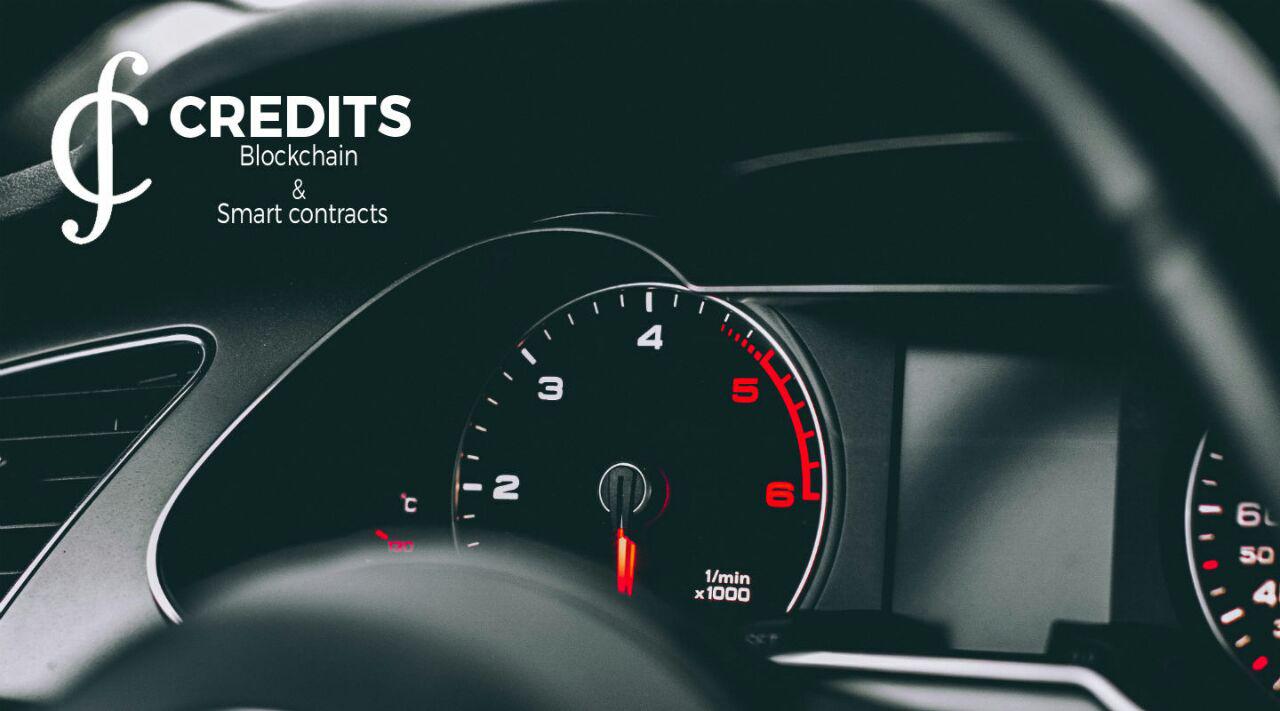The development of the Internet of Things (IoT) is a new stage in the digital revolution. The IoT is a network of connected devices that interact with each other, form and exchange data. All these devices, for example a well-known watch for fitness tracking, and smart home technologies, are used to make people’s lives easier and more comfortable. The implementation of a blockchain will greatly optimize IoT processes.
One growing sector of the IoT are „smart“ cars, which are a hybrid between car and built-in artificial intelligence. Cars can be smart in various ways, for example, cars with alternative power sources or self-driving cars. Blockchain platforms should improve the technology and make smart cars even more popular. So how this will happen?
How does a decentralized network improve the operation of a smart car?
The developers of smart cars continue to pour out ideas. For example, a Japanese car company plans to create a car which „predicts“ heart problems of drivers; and American engineers have patented a system that tracks short circuits in the batteries. However, the normal operation of such vehicles still requires all systems to work in a well-coordinated way.
According to Christophe Ozcan CEO & Co-founder at Crypto4all, blockchain will help with inter-machine interactions (M2M), i.e. the technology that provides information exchange between machines. As a decentralized network does not allow individual participants to control processes in a blockchain, they cannot disrupt operations in the network. Thus all blockchain members are equal and connected to the network by the same protocols. However, different blockchain platforms view this interaction in different ways.
HDAC (Hyundai Digital Asset Company), founded by the South Korean Hyundai Motor Company, allows users of smart cars to set the conditions of smart contracts in the network by themselves. A smart contract is an algorithm that runs automatically when certain events occur in the blockchain. In addition, processes in the decentralized HDAC network are supported by mining and are built on a proof-of-work algorithm, i.e. a network participant „wins“ and gets a reward when they perform a complex task or solve a problem in a blockchain before anyone else.
The new CREDITS blockchain platform also uses smart contracts for M2M that can exist only within an environment providing unimpeded access to all network objects and which excludes any interference in the transactions that take place between participants of the blockchain. For example, a „smart“ contract in a decentralized network may not technically allow a smart car to transport a person who is not a member of the network if the smart contract stipulates such a condition.
The platform has also abandoned mining, so the risks associated with PoW, such as a mining monopoly, are eliminated. The network’s work in CREDITS is supported by a delegated share evidence (DPoS) consensus algorithm. Briefly: nodes of a blockchain network admitted to voting are sorted; the node that confirmed the software currentness votes. Each node can become trusted no more than once over a certain period. Thus, decentralization is maintained, which in turn, ensures the smooth operation of the smart car system.
Security issue
Car owners are always concerned about security from theft or hijacking. Smart cars give new ways for human interaction with the car, and intruders can no longer use the same old methods. However, this does not deter them, they still try to „cheat“ the controlling system, rewriting its data or replacing the access rights. Once again, a blockchain gives the solution: it is almost impossible to crack a decentralized network.
Self-managed cars on a Blockchain are beginning to be used in carpooling, i.e. sharing of cars using search services for travel companions. Security is provided by a reputation protocol: participants of a blockchain network create rules and those who do not follow them lose the „bonuses“ of trust. For example, someone who has not complied with the requirements will simply not be able to open the car door. Could this be applicable not only to „distributed“ transport, but also to private smart cars?
HDAC uses a „hybrid“ blockchain for protection, which is a „double chain“ (public and private) with a secure connection between the user and the device. Both the public and private key of a blockchain network user is produced by quantum random number technology. This protects data in the system, and a hacker will not be able to take possession of a smart car owned by someone else.
The CREDITS platform also eliminates hacking of public and private keys in a distributed network, but uses a more mathematically complex algorithm. How does it work? Two parties in a network can obtain a shared secret key using an unsecured communication channel. This code can then be used to create a new key or to encrypt further transactions. Therefore the potential hacker is unable to invade the system. However, if a problem has already occurred, for example, a smart car „does not respond“ to the owner, it is easy to detect its source. CREDITS is a public data register with information about different aspects of transactions.
Security in CREDITS is augmented by one more mathematical solution, a homomorphous encryption: in a blockchain, you can perform operations with encrypted data without having to decrypt them. Additionally, this also increases the speed of the network, and the „hijacker“ simply does not have a chance to affect the system in 1-3 seconds (the speed that transactions pass in the CREDITS).
Smart cars and Blockchain: The Future
The IoT is rapidly growing and experts believe that tens of billions of devices will be linked by 2025. Each user of the IoT generates 0.77 GB of data every day, and this number will continue to increase. Currently, Blockchain brings some advantages, but over time it may become necessary, as only a distributed network is able to cope with this amount of data.
At the moment smart cars represent a significant share in the growing IoT, and, given the technologies being developed by automakers, these cars will only become more popular. A blockchain itself guarantees safety and protection not only from criminals, but also from the risk that „smart“ car operation will suffer from the actions of separate participants in the distributed network. The new blockchain platforms are improved versions of the previous ones without the disadvantages.
Therefore when changing to a smart car, owners should also change to blockchain. Global experience shows that this technology is the future, especially the future of the automobile market.
Source
>> CREDITS.com

